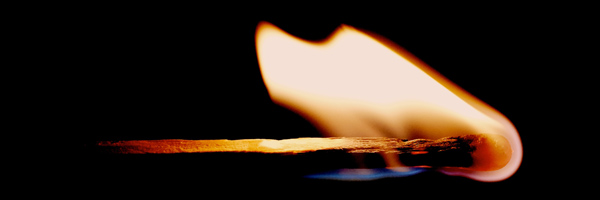
Dear Friends,
The story of Shadrach, Meshach, and Abednego found in Daniel 3 has always intrigued me. In the story, King Nebuchadnezzar of Babylon, a man with significant leadership issues, concocts a scheme to construct a giant gold statue, place it in the plain of Dura, and then command all of the people to bow down and worship his golden abomination. Those who failed to bow down and worship the golden figure were to be given the opportunity be special guests in the king’s sauna of fire.
Three men, Shadrach, Meshach, and Abednego, exiles from Isreal, are not too keen on this new plan of the monarch. They unequivocally refuse to bow down to worship the shiny man because to do so would be an anathema to their God. This royally ticks off the king who forgets everything he learned in his years of therapy for anger management issues and he orders the three men to be thrown into the blazing furnace but just to make sure the men are really dead dead and not just dead he orders the furnace to be heated seven times hotter than normal. Unfortunately, this story happened in the days before OSHA. The heat from the furnace was so extreme it killed the soldiers who had been given the charge to toss the three men into the furnace. We all know how the story ends. Once they are tossed into the furnace the three men are joined by a fourth for a little furnace warming party. When the festivities are over, the original three walk out of the furnace without a scorch to a hair on their head or even the smell of fire on their clothes.
What fascinates me most about this story is not their miraculous deliverance from the furnace, as amazing as that is, but the speech they give to Nebuchadnezzar just prior to his attempted murder. With defiant courage they boldly declare to the king, ” If we are thrown into the blazing furnace, the God we serve is able to deliver us from it, and he will deliver us from Your Majesty’s hand” (vs. 17). That had to take some major chutzpa to declare with such confidence their deliverance to the king who was about to have them burned alive. It is their next words that are the words of dazzling faith, “But even if he does not, we want you to know, Your Majesty, that we will not serve your gods or worship the image of gold you have set up” (vs. 18). That’s unconditional faith.
How often do we pray with conditional faith? Conditional faith is a faith that says to God, “I will worship and follow you so long as you __________.” There are so many things we could finish the sentence with:
So long as nothing bad happens.
So long as I get to live the way I want.
So long as you give me what I want.
So long as you don’t ask me to give up anything or move to another country or change jobs.
Our three friends have a very different kind of faith. Their unconditional faith recognizes our ways are not God’s ways and his plans are not our plans, and even when things don’t go the way we would want them to we will still worship God. Their faith says:
God, I know you are are able to rescue me from the furnace, but even if you don’t I will still worship you.
God, I know you are able to heal this sickness but even if you don’t I will still worship you.
God, I know you are able to provide me a better job, a new house, a car that runs but even if you don’t I will still worship you.
God, I know you are able to mend my broken relationships but even if you don’t I will still worship you.
God, I know you are able to take this depression, darkness, and anxiety from me but even if you don’t I will still worship you.
God, I know you can remove the cancer from my body but even if you don’t I will still worship you.
God, I know you are the one who raises the dead but even if you don’t rescue me from death (my own death or that of someone I love) I will still worship you.
God, I know you are able to prevent wars and famines but even if you don’t I will still worship you.
This is the profound faith in God demonstrated to us by Shadrach, Meshach, and Abednego. Their faith in God remained unchanged even if God didn’t “come through” but what about us?
Blessings,
Stephen